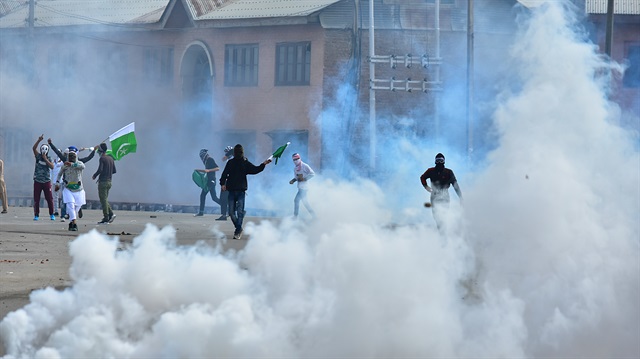
Supreme Court adjourns hearing on permanent resident law to January
The Indian Supreme Court on Friday adjourned the hearing of the case that challenges Kashmir’s permanent resident law till the second week of January, bringing temporary relief to the Kashmir’s citizens.
The representatives of the Indian central government and the Jammu and Kashmir government both asked the court for the case to be pushed back, saying it could trigger unrest and affect efforts to organize long-delayed local body elections in the region scheduled for the end of this year.
While the Supreme Court in Delhi heard the case on Article 35A on Friday, the Jammu and Kashmir region observed a complete shutdown for the second consecutive day.
Several argue that the Indian government wants to change the demography of the Muslim-majority region by tempering with the land ownership laws. The shutdown was called by the region's pro-Independence leadership.
Article 35A, which is under contention in the Indian Court, was incorporated in the Indian Constitution by a 1954 presidential order.
It confers special status to the permanent residents of Jammu and Kashmir, and bars people from outside the state from acquiring any immovable property in the state, thereby maintaining its Muslim-majority character.
Kashmir, a Muslim-majority Himalayan region, is held by India and Pakistan in parts and claimed by both in full. A small sliver of Kashmir is also held by China.
Since they were partitioned in 1947, the two countries have fought three wars -- in 1948, 1965 and 1971 -- two of them over Kashmir.
Also, in Siachen glacier in northern Kashmir, Indian and Pakistani troops have fought intermittently since 1984. A cease-fire came into effect in 2003.
Some Kashmiri groups in Jammu and Kashmir have been fighting against Indian rule for independence, or for unification with neighboring Pakistan.
According to several human rights organizations, thousands of people have reportedly been killed in the conflict in the region since 1989.




